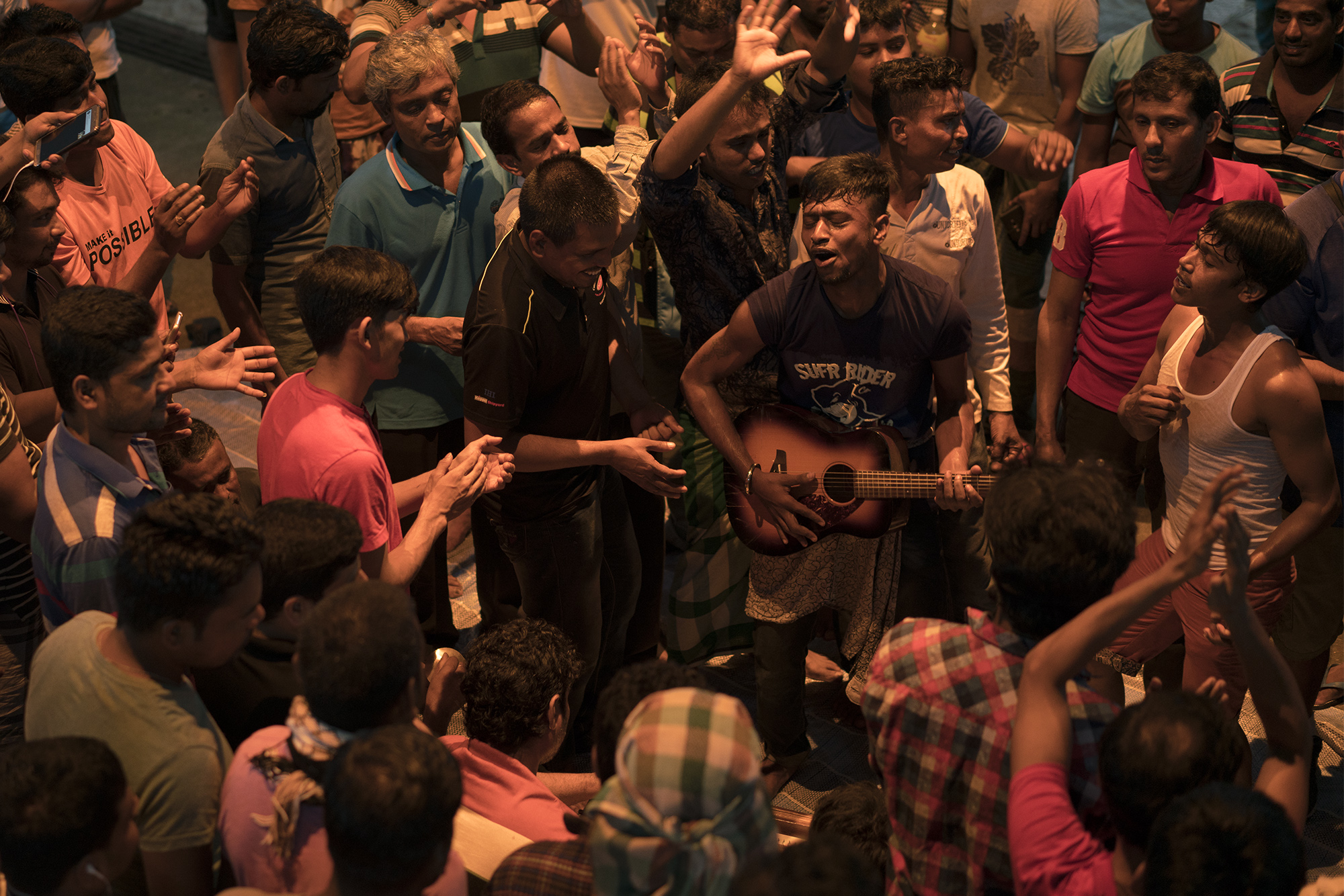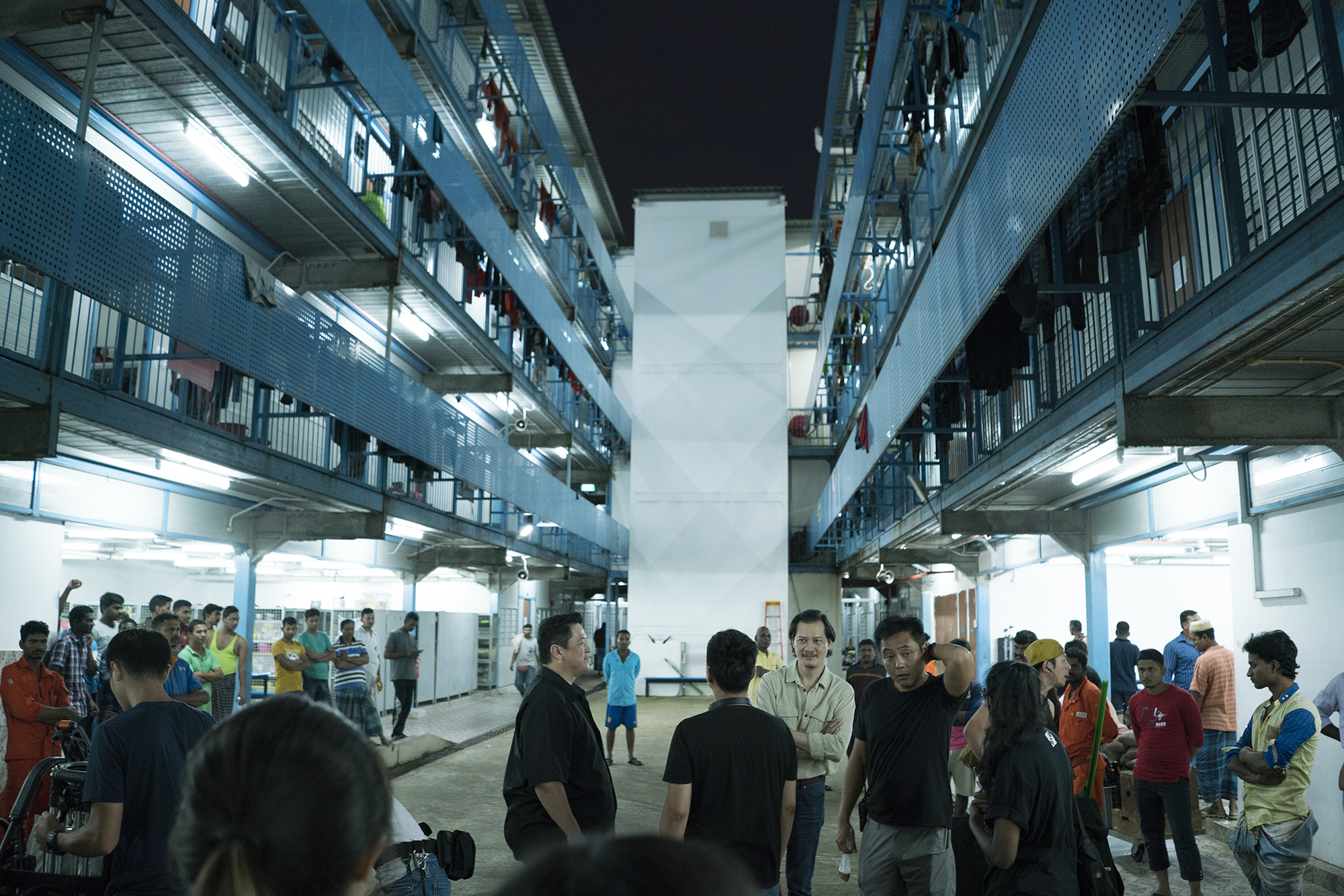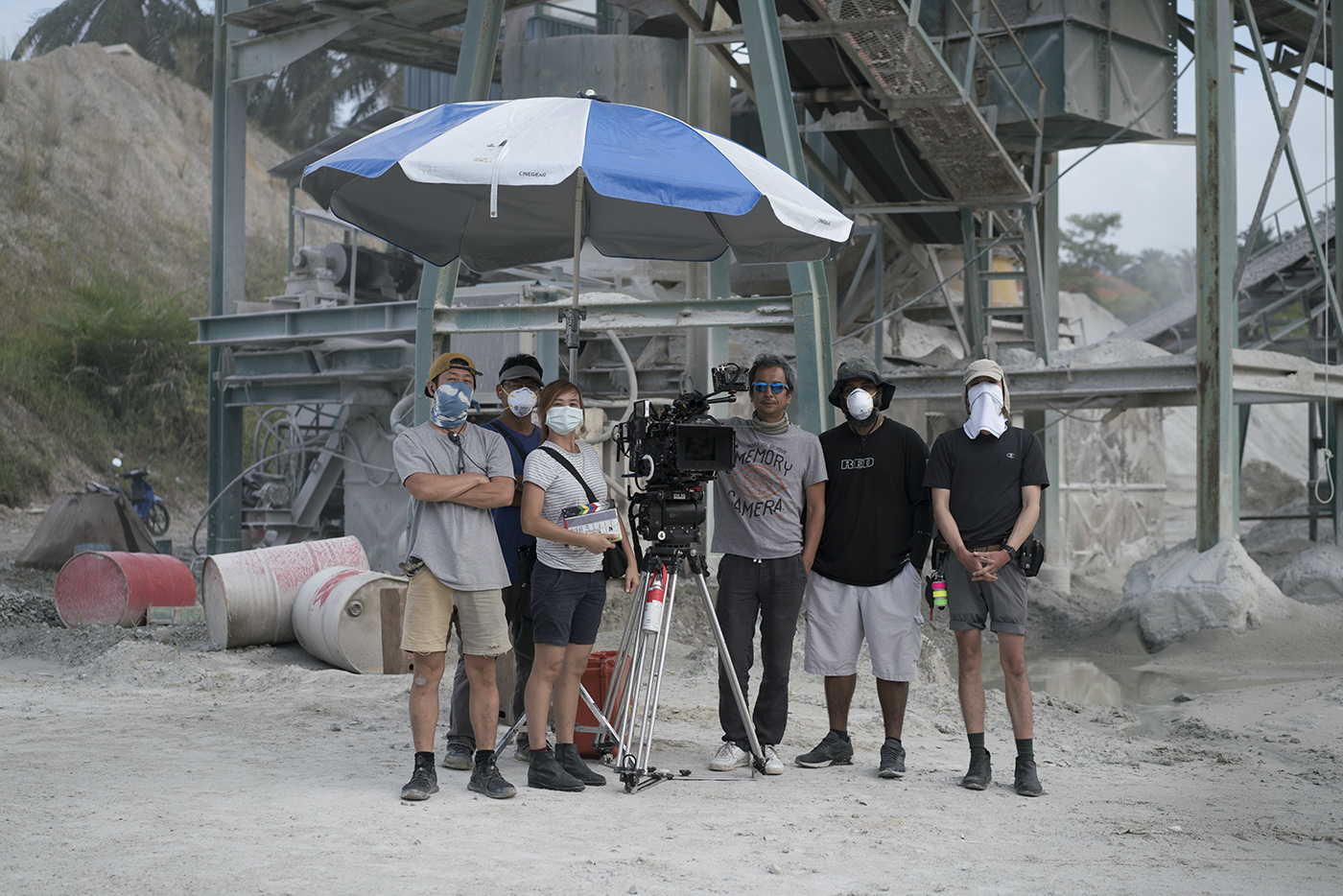[UPDATED on Saturday, Nov.23 at 8.30pm: A Land Imagined has won the Best Original Screenplay at the prestigious 56th edition of the Golden Horse Awards 2019 in Taipei.]
A Singaporean man spending his alternate weekends with a group of migrant workers in industrial Tuas might sound peculiar to some, especially since Tuas is almost like a foreign land to most Singaporeans.
But in order to prepare for his feature film, Yeo Siew Hua did just that -- but the 34-year-old probably came away with more than he would have thought.
Yeo is the director of A Land Imagined, a mystery, neo-noir movie that follows a police investigator looking to find a missing migrant worker.
The movie stars former Mediacorp actor Peter Yu and Chinese actress Luna Kwok.
Beyond the investigation and suspense aspect of the film, it also touches on issues relevant to the migrant worker community that locals may not know of.
Finding a voice for foreign workers
The idea for a migrant worker-centred movie first came to Yeo eight years ago, when he was intrigued by the idea of land reclamation.
"It's very fascinating for me as a Singaporean to live in a space that's continuously growing. And the actual people who are doing it are the migrant workers, who are everywhere but at the same time, a bit invisible."
And then it became his mission and challenge to make migrant workers the front and focus of his feature film.
"I needed to represent a community of people who weren't me. I'm not them, but at the same time, I had to at least try to find a voice for them."
Great coincidence
And the chance came when he was on a site recce for dormitories in Tuas sometime back in 2016.
On that eventful day, Yeo noticed a group of foreign workers merrily playing instruments like violins and guitars, while others danced along.
 Dancing and singing in a dormitory isn't something Singaporeans would expect. Photo courtesy of Yeo Siew Hua
Dancing and singing in a dormitory isn't something Singaporeans would expect. Photo courtesy of Yeo Siew Hua
Intrigued by the unfamiliar sight, he sat down with these workers, who welcomed him with open arms.
Yeo later found out that they were practising for gigs they regularly have in their dormitories -- something most Singaporeans would never have seen or known about.
"We always see them as workers, but at the same time, they're also human beings with a whole universe of life and culture. Some of them are top-grade musicians."
Two years to earn their keep
In the two years of Yeo interacting with the migrant workers and filming in their space, he has learnt some of the problems they face on a day-to-day basis.
As Yeo wanted to retain the authenticity of the typical working conditions of migrant workers, they filmed at actual dormitories, which Yeo found "intimidating".
 Scenes were shot at real dormitories... Photo courtesy Yeo Siew Hua
Scenes were shot at real dormitories... Photo courtesy Yeo Siew Hua
And then there were the construction sites, which were merciless with the scorching heat, lots of dust in their faces and the constant loud drilling.
"We go on site for a few minutes until we cannot tahan, then we run back in to hide from the hot sun and then go back again. The truth is, that's the experience of the workers working there."
 ... And construction sites. Photo courtesy of Yeo Siew Hua
... And construction sites. Photo courtesy of Yeo Siew Hua
Apart from the harsh working conditions, some of them also face financial struggles.
"One of them told me that he had to work for two years before they can pay back what they owe (the agencies). Two whole years before they get to earn for themselves, it's quite mindblowing."
Yeo is still in contact with some of the migrant workers and would spend time with them every other week, though admittedly, he has been busy with travelling between film festivals.
Migrant workers in the Singapore narrative
After seeing how much these workers-turned-friends have done for Singapore, both Yeo and Yu think Singaporeans should have more compassion and empathy towards them.
Lead actor of the film, Yu, said:
"I feel for these foreigners. Leaving your family to work in a foreign country, that's very scary."
And it's also important to include migrant workers in Singapore's narrative.
"We call ourselves Singaporeans but this guy has literally been building our land for 20 years. In some way, they can never be part of our mainstream society. But it's important that they become part of the narrative."
Staying grounded despite going international
The film, which was first released on 2018, has won several awards including being the first Singaporean movie to be named Best Film at the Silver Screen Awards and winning the Golden Leopard -- the most prestigious award -- at the Locarno Film Festival.
When asked on how he felt when he received these awards, Yeo simply said that he feels "super rewarded"."It has been a bit of a dream for me. You don't start out making a film thinking of winning a top award, right?"
Ultimately, Yeo is gratified to gather these accolades as it also helps to gain visibility for the migrant workers in Singapore.
As production for A Land Imagined is coming to a full circle, there's just one more thing he and his production crew wants to do: Screen the movie to their migrant worker friends for free.
"We're in the midst of adding Bengali subtitles so the Bangladeshi workers can understand when we show it to them."
Top image courtesy of Yeo Siew Hua
If you like what you read, follow us on Facebook, Instagram, Twitter and Telegram to get the latest updates.
